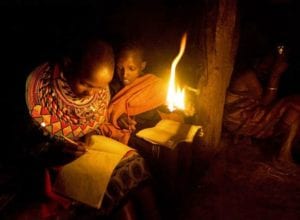According to the International Energy Agency’s (IEA) Africa Energy Outlook, a Special Report in the 2014 World Energy Outlook series, the increase of access to modern forms of energy is crucial to unlocking faster economic and social development in sub-Saharan Africa.
The report states that in the region of 620 million people in sub-Saharan Africa live without electricity and that nearly 730 million people rely on dangerous, inefficient forms of cooking. “A better functioning energy sector is vital to ensuring that the citizens of sub-Saharan Africa can fulfil their aspirations,” says IEA executive director Maria van der Hoeven. “The energy sector is acting as a brake on development, but this can be overcome and the benefits of success are huge.”The report, IEA’s first comprehensive analysis of sub-Saharan Africa, finds that the region’s energy resources are more than adequate to meet the requirements of its population. However, these energy sources are largely under-developed. The region accounts for almost 30% of global oil and gas discoveries made over the last five years and it is already home to several significant energy producers which include Nigeria, South Africa and Angola. The region also has massive renewable energy resources that include widespread solar and hydro potential, as well as wind and geothermal applications.
“Economic and social development in sub-Saharan Africa hinges critically on fixing the energy sector,” says IEA chief economist Fatih Birol. “The payoff can be huge; with each additional dollar invested in the power sector boosting the overall economy by $15.” In an “African Century Case”, the IEA report shows that three actions could boost the sub-Saharan economy by a further 30% in 2040, and deliver an extra decade’s worth of growth in per-capita incomes by 2040. These actions are:- An additional US$450 billion in power sector investment, reducing power outages by half and achieving universal electricity access in urban areas
- Deeper regional co-operation and integration, facilitating new large-scale generation and transmission projects and enabling a further expansion in cross-border trade, and
- Better management of energy resources and revenues, adopting robust and transparent processes that allow for more effective use of oil and gas revenues.







